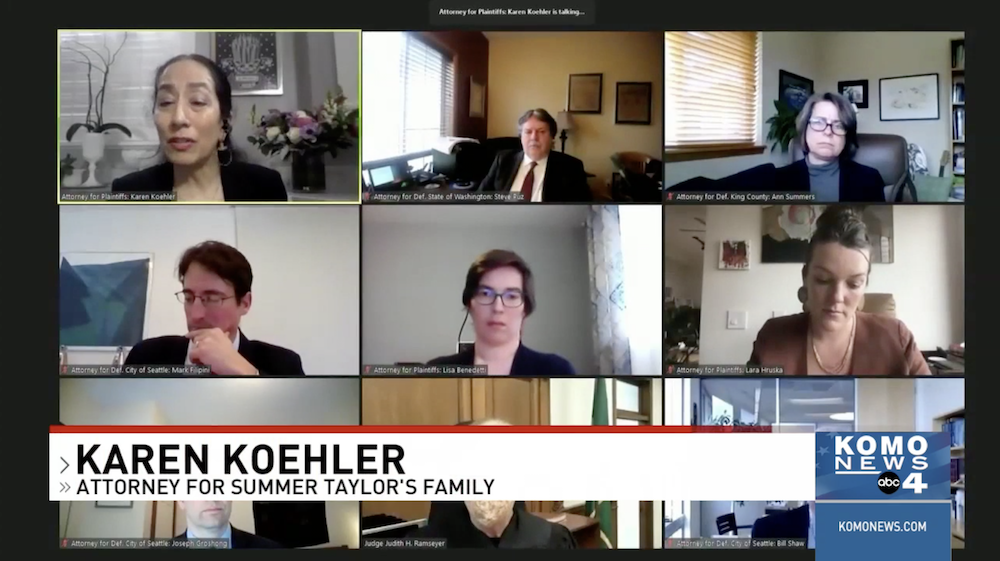
Last September, SKKM Firm filed a lawsuit against the City and Seattle and State of Washington on behalf of peaceful protesters in Seattle, which is also joined by Cedar Law PLLC and their clients.
Recently, the City of Seattle filed a motion asking the Court to dismiss some of the protesters’ claims as having no basis in the law – that even if every fact alleged in the Complaint were true, the law provides no basis for relief. Those claims were:
- The negligence claim of Summer Taylor against the City for their death,
- Claims based on the violation of the Washington State Constitution, and
- The claims of all plaintiffs of violation of the Washington Law Against Discrimination (WLAD).
The WLAD is a fascinating and powerful law. It guarantees “[t]he right to be free from discrimination because of” various protected classifications, including race. It includes the right to “full enjoyment of any of the accommodations, advantages, facilities, or privileges of any place of public resort, accommodation, assemblage, or amusement.”
The City claimed that WLAD did not protect peaceful protesters – whether they were Black, People of Color, or allies – from being attacked disproportionately by the Seattle Police Department, compared to other demonstrators who were not advocating for the BLM Movement and against racist police brutality.
And regarding Summer Taylor, the City claimed it owed them no legal duty, and could not be held legally responsible for permitting protests on I-5, and even shutting down the freeway for those protests, yet failing to shut it down completely. As a result, Summer Taylor was killed while peacefully protesting on I-5 when a driver, high on methamphetamines, gained access to the freeway despite its supposed “closure” because offramps had not been blocked.
Yesterday, the Court ruled that Summer Taylor’s negligence claim and the claims based on WLAD may proceed, and denied the City’s motion to dismiss them. As to the Washington State Constitution claims, the Court has ruled that plaintiffs may ask the court to amend the complaint, so that these claims can be stated more fully.
In allowing the WLAD claims to proceed, the Court acknowledged that, although no Washington appellate court had said so previously, our laws protect from discrimination not only people who are discriminated against because of their race, but also those who are discriminated against derivatively – for associating with people of other races, or advocating against racist practices.
This is just one in many complex steps for this case, but nonetheless, it is a great victory for plaintiffs!
